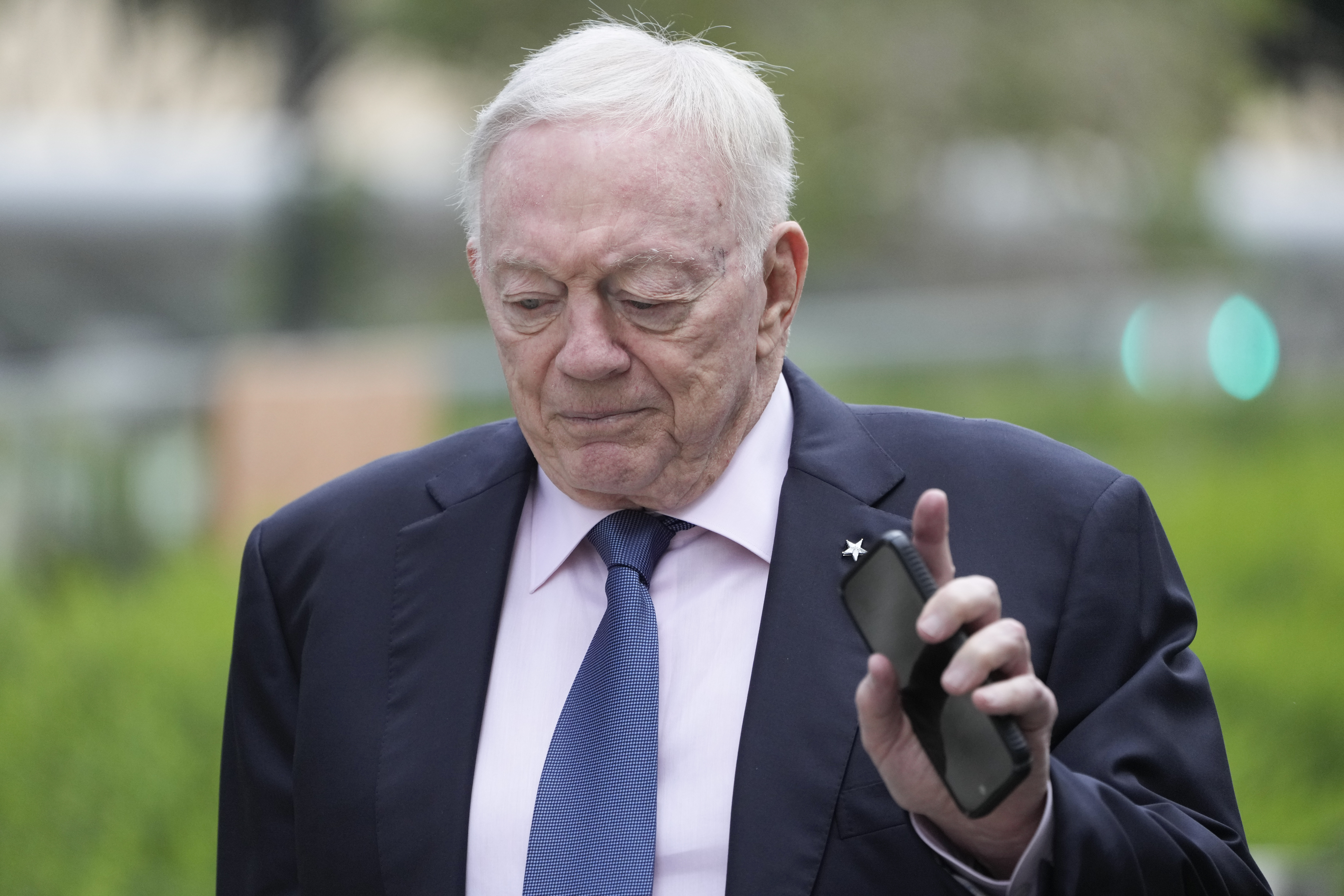
By JOE REEDY AP Sports Writer
LOS ANGELES (AP) — The federal judge presiding over the class-action lawsuit filed by “Sunday Ticket” subscribers against the NFL voiced frustrations Tuesday with the way the plaintiffs’ attorneys have handled their side of the case.
Before Dallas Cowboys owner Jerry Jones took the stand Tuesday for a second day of testimony, U.S. District Judge Philip Gutierrez said the premise of the case was simple — who wouldn’t see the frustration of a Seattle Seahawks fan living in Los Angeles not being able to see their favorite team without buying a subscription for all the Sunday afternoon out-of-market games.
“The way you have tried this case is far from simple,” Gutierrez told attorneys representing the subscribers. “This case has turned into 25 hours of depositions and gobbledygook. … This case has gone in a direction it shouldn’t have gone.”
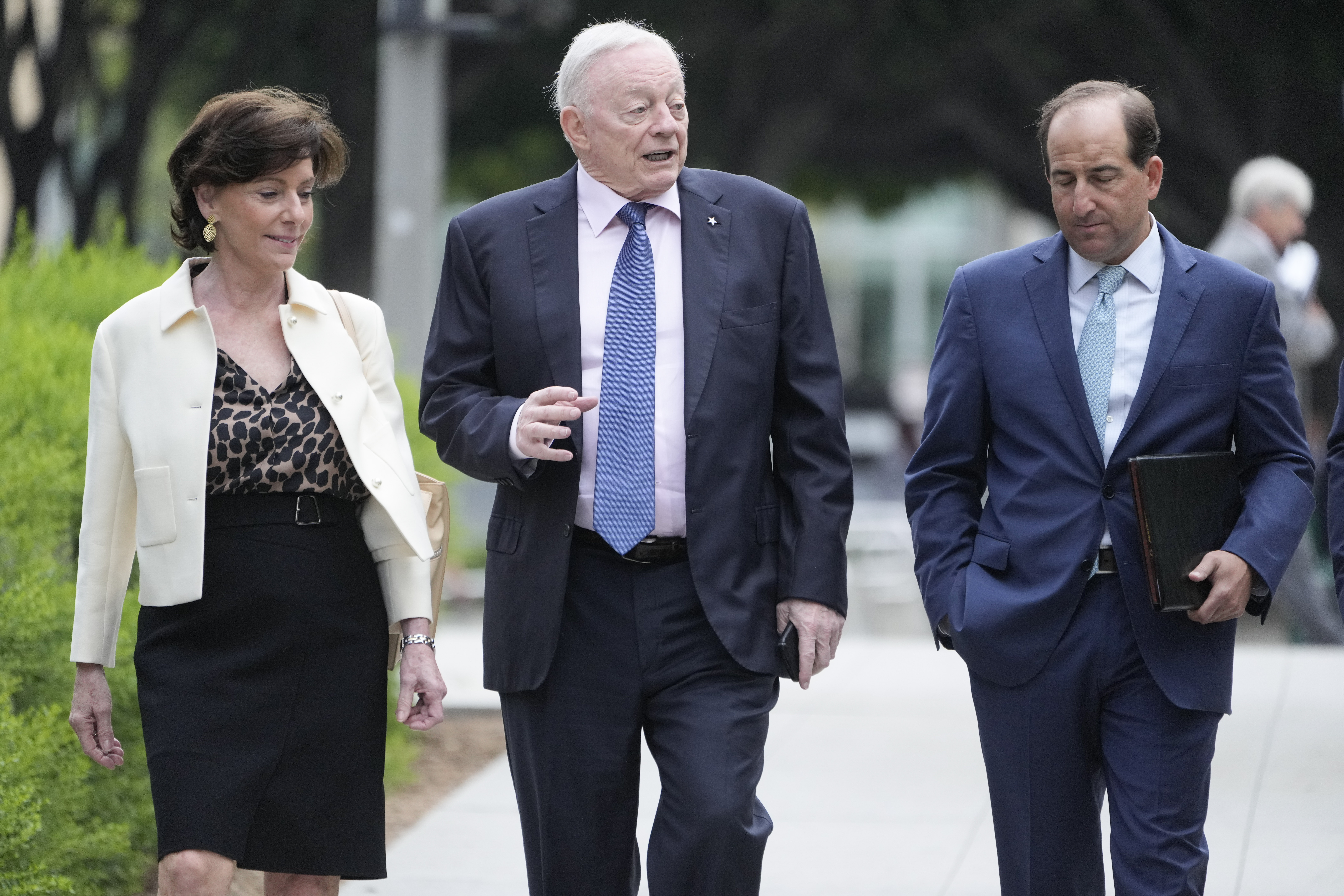
The class-action, which covers 2.4 million residential subscribers and 48,000 businesses who paid for the package of out-of-market games from the 2011 through 2022 seasons, claims the league broke antitrust laws by selling its package of Sunday games aired on CBS and Fox at an inflated price. The subscribers also say the league restricted competition by offering “Sunday Ticket” only on a satellite provider.
The NFL maintains it has the right to sell “Sunday Ticket” under its antitrust exemption for broadcasting. The plaintiffs say that only covers over-the-air broadcasts and not pay TV.
If the NFL is found liable, a jury could award $7 billion in damages, but that number could balloon to $21 billion because antitrust cases can triple damages.
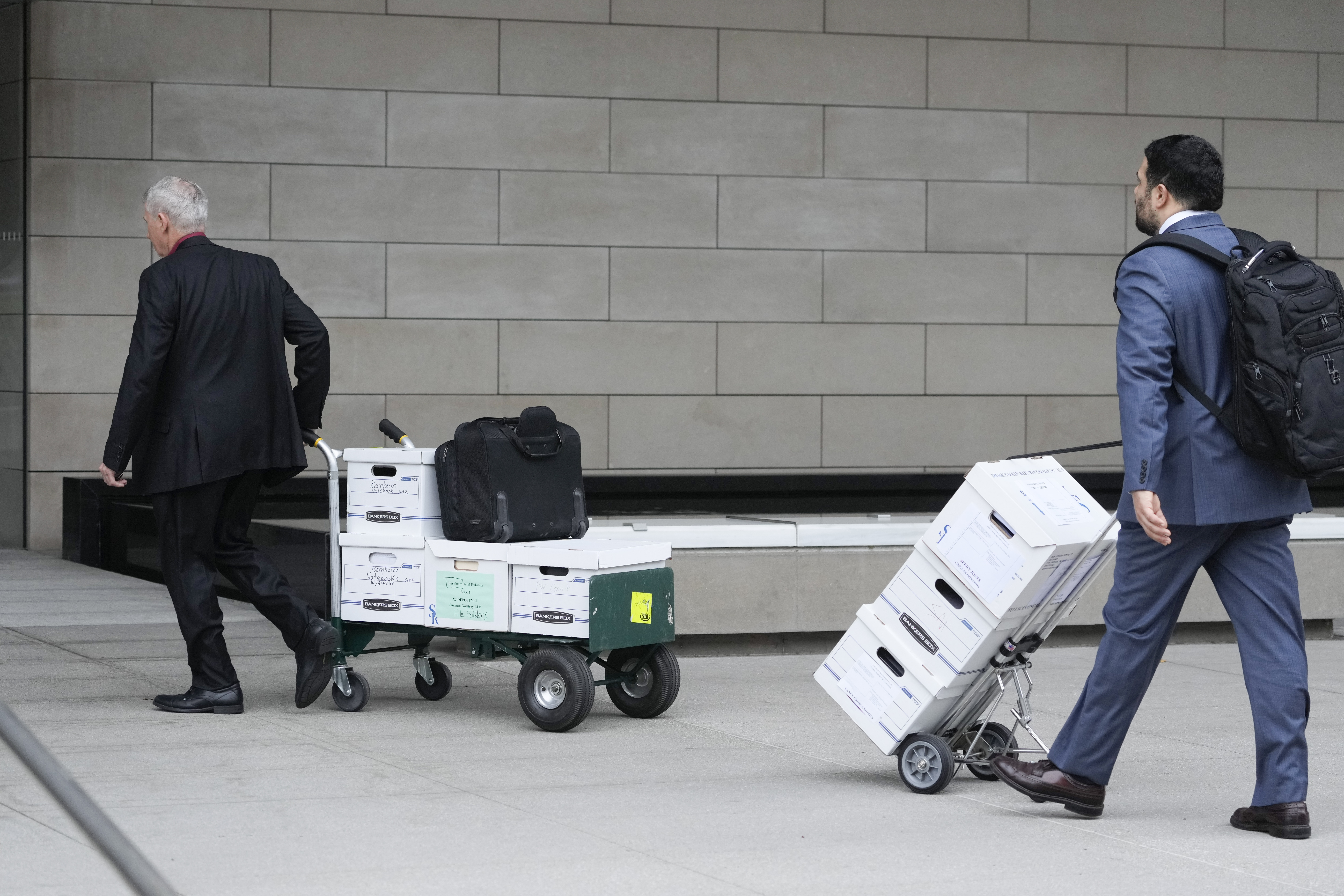
Tuesday was not the first time Gutierrez has expressed frustration with the plaintiffs’ side. On Monday, he admonished their attorneys for repeatedly describing past testimony, which he considered a waste of time.
Before Jones resumed his testimony, Gutierrez expressed doubts about plaintiffs’ attorneys citing Jerry Jones’ lawsuit against the NFL in 1995, which challenged the league’s licensing and sponsorship procedures.
“I don’t know what you are doing, but marketing is not media,” Gutierrez said.
Later in his testimony, Jones said he sued the NFL because the league sued him. Both sides eventually settled out of court.
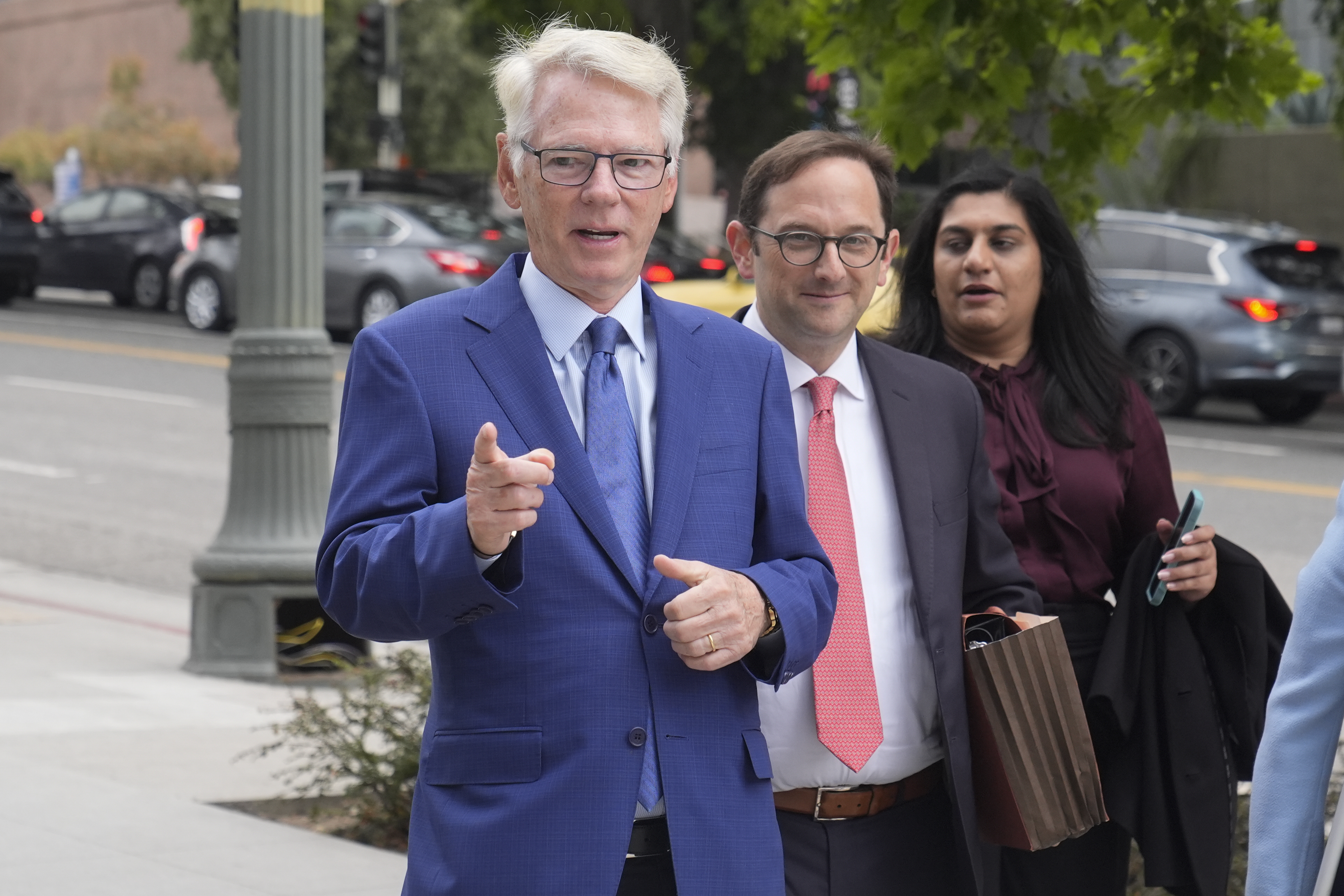
Jones’ filing against the NFL in 1994 said he supported the league’s model for negotiating television contracts and the revenue-sharing agreements in place.
When asked Tuesday if teams should be able to sell their out-of-market television rights, Jones said no because “it would undermine the free TV model we have now.”
Retired CBS Sports chairman Sean McManus also testified, reiterating during his testimony that he was a not fan of “Sunday Ticket” or the NFL’s Red Zone channel because he believes it infringes on the exclusivity CBS has in local markets.
CBS and Fox both requested in negotiations that “Sunday Ticket” be sold as a premium package. DirecTV, and not the NFL, set the prices during the class-action period.
The league has language in television contracts with CBS and Fox that the “resale packages (Sunday Ticket) are to be marketed as premium products for avid league fans that satisfy complementary demand to the offering of in-market games.”
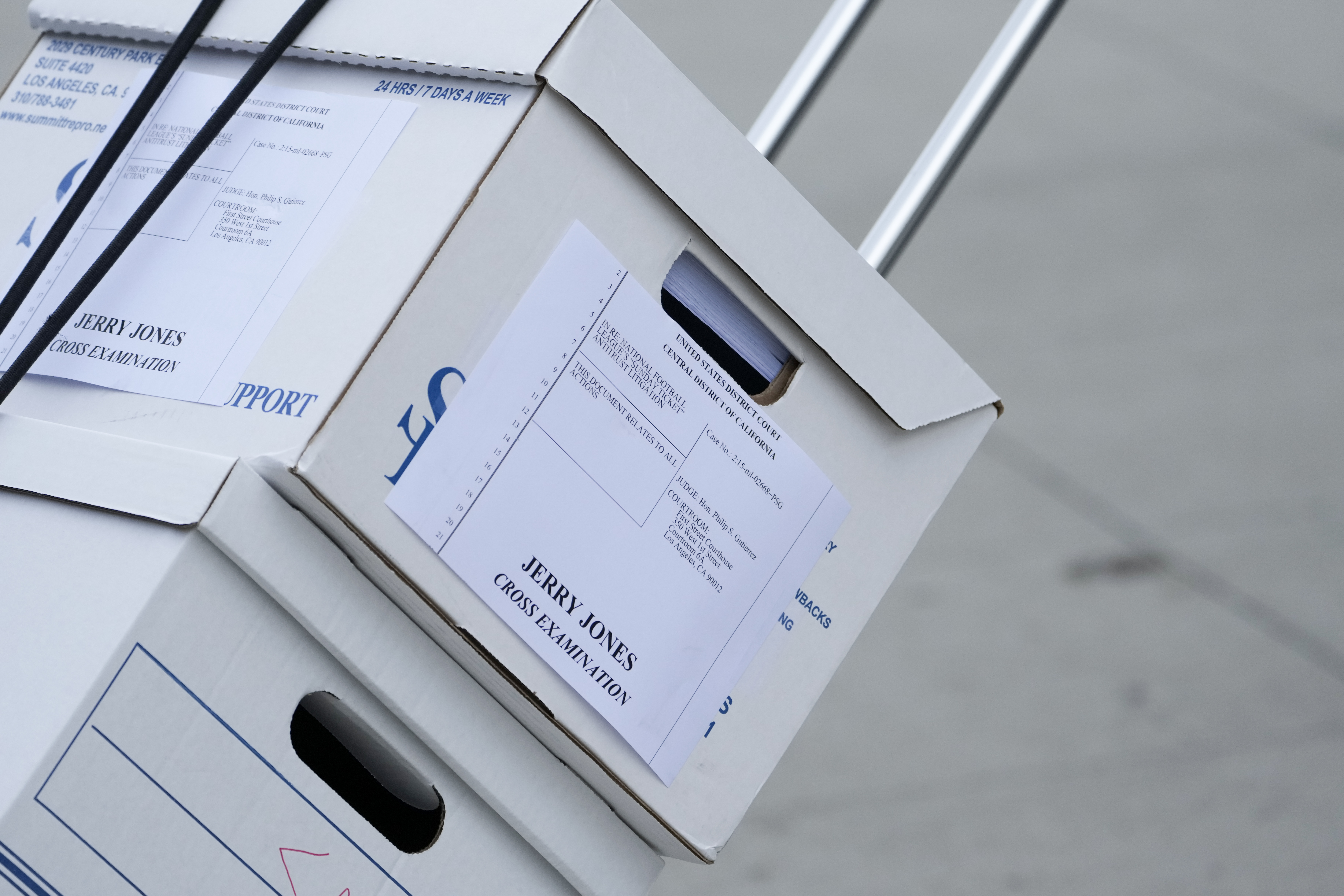
There is additional language that prohibits the selling of individual games on a pay-per-view basis.
The NFL received a rights fee from DirecTV for the package from 1994 through 2022. Google’s YouTube TV acquired “Sunday Ticket” rights for seven seasons, beginning last year.
Jamie Dyckes, a DirecTV marketing official, said during a deposition that MLB, the NBA and the NHL had a suggested retail price for their out-of-market packages and that there was revenue sharing between the leagues and the carriers, since their packages were distributed on multiple platforms.
Testimony will continue Thursday, with closing statements scheduled early next week. Gutierrez said he would consider invoking a rule where the court can find that a jury does not have sufficient evidence to rule for a party in a case.
“I’m struggling with the plaintiffs’ case,” he said.

